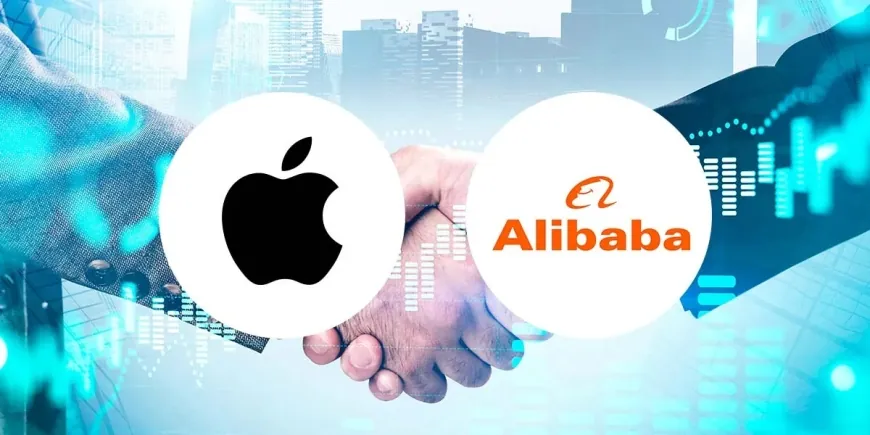Apple and Alibaba AI Launch in China Delayed by Chinese Regulator Amid US-China Trade Tensions
Apple and Alibaba’s AI service rollout in China stalls as the Cyberspace Administration delays approval, citing rising US-China trade conflicts.

Apple and Alibaba’s plan to bring new artificial intelligence (AI) services to China has hit a significant roadblock as Chinese regulators pause their approval process. According to sources familiar with the matter, the Cyberspace Administration of China (CAC) has temporarily suspended reviewing the AI applications due to increasing geopolitical tensions between the United States and China.
Earlier this year, in February, Apple and Alibaba announced a strategic partnership aimed at enhancing AI-powered features on iPhones sold in China. The collaboration was designed to help Apple regain momentum in a market where its smartphone sales have recently declined. By working with Alibaba, China’s leading e-commerce and cloud services company, Apple sought to deliver AI experiences better tailored to the preferences and regulations of Chinese consumers.
However, the delay by the CAC has cast uncertainty over the launch timeline of these AI services. The regulatory hold reflects the broader climate of caution in Beijing toward foreign technology firms amid ongoing trade disputes, national security concerns, and political friction between the two economic superpowers.
The Chinese government has increased scrutiny of foreign tech companies over the past few years, tightening rules around data security, content control, and technology transfers. These measures have often slowed down foreign investments and product rollouts. In this case, the CAC’s intervention means Apple and Alibaba’s AI plans may face further setbacks, as regulators take extra time to review potential risks linked to foreign involvement in critical technology sectors like AI.
For Apple, the delayed approval complicates efforts to boost the appeal of its devices in China. The company has seen its iPhone market share shrink in recent years, facing fierce competition from local brands like Huawei, Xiaomi, and Oppo. Integrating AI features powered by Alibaba’s cloud infrastructure was viewed as a crucial step to offer a more localized experience, which could help Apple better connect with Chinese consumers.
Alibaba, on its part, benefits from the partnership by showcasing its AI and cloud technology capabilities on a global stage. The company has heavily invested in expanding its cloud computing infrastructure and AI research, aiming to rival international giants like Amazon Web Services and Microsoft Azure. However, the regulatory hold adds uncertainty to Alibaba’s ambitions, potentially slowing its growth in the AI cloud services market.
Neither Apple nor Alibaba have issued statements about the delay, but insiders say the companies are closely monitoring the situation and remain committed to the partnership. Analysts suggest that the stall highlights the increasing challenges tech companies face when operating in politically sensitive environments where technology, national security, and trade issues intersect.
This delay is not just about the technology itself but a reminder of the broader geopolitical context shaping the global tech landscape. As the U.S. and China continue to impose restrictions and countermeasures on each other’s companies, partnerships like Apple and Alibaba’s face growing hurdles, impacting innovation and market strategies.
The CAC’s pause also signals Beijing’s intent to maintain tight control over the AI sector, which it considers a strategic priority for economic and security reasons. Chinese regulators want to ensure that any AI development involving foreign players aligns with national interests and complies with stringent cybersecurity and data protection laws.
The timing for approval remains uncertain. The extended review could delay the availability of new AI features on iPhones in China, possibly affecting Apple’s sales and customer engagement in one of its most important markets. Meanwhile, Alibaba may need to adjust its plans to accommodate longer regulatory timelines, impacting its expansion goals in AI-powered cloud services.
The regulatory delay comes amid growing tensions between the U.S. and China, directly impacting Apple’s efforts to enhance iPhone AI features for the Chinese market. For Alibaba, the hold-up at the Cyberspace Administration of China adds uncertainty to its role in supporting these AI services, slowing down a partnership that could have boosted both companies amid a challenging trade environment.
Also Read: Amazon’s $10 Billion Investment in North Carolina Set to Create 500 New Tech Jobs































































